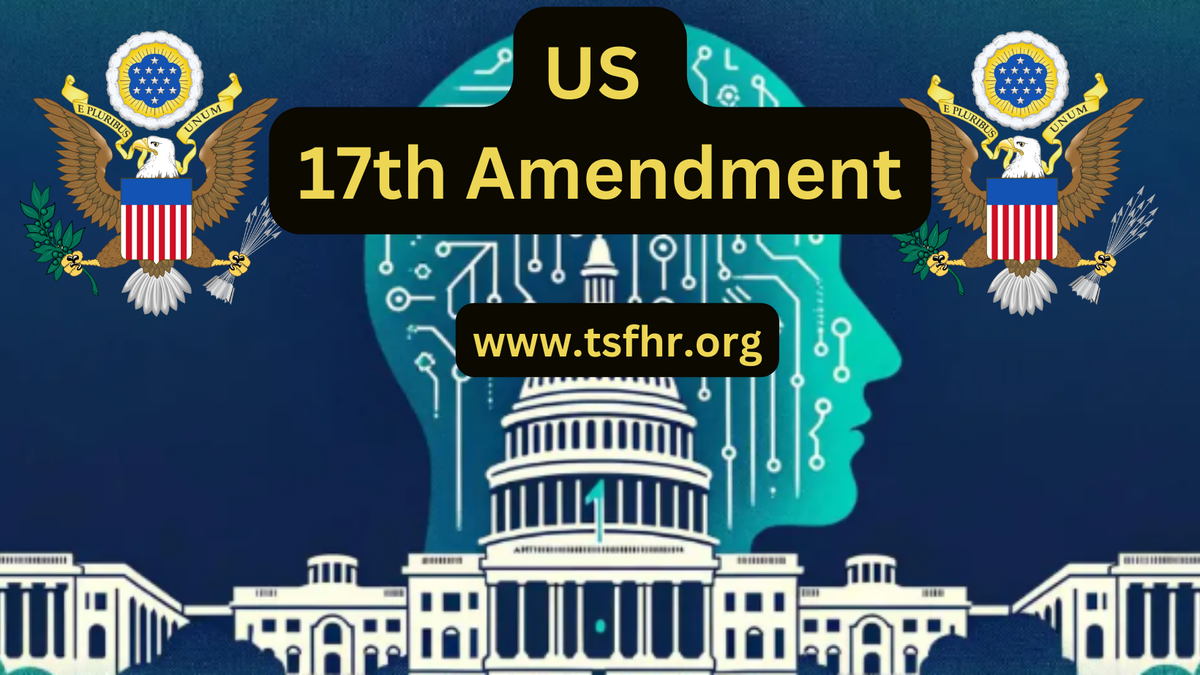What is the 17th Amendment in Simple Terms: Learn what the 17th Amendment means in simple terms. This article explains its creation, importance, and impact on the election of U.S. Senators in easy-to-understand language.
Introduction:
The 17th Amendment changed the way U.S. Senators are elected, allowing the people to vote directly for their Senators instead of state legislatures choosing them. This shift empowered voters and made the Senate more representative of the people. In this article, we’ll break down the 17th Amendment in simple terms, explain why it was created, and discuss its significance in modern American democracy.
What is the 17th Amendment in Simple Terms:
What is the 17th Amendment in Simple Terms?
The 17th Amendment to the U.S. Constitution, ratified in 1913, gave citizens the power to directly elect their U.S. Senators, instead of having state legislatures appoint them. This change was designed to make the Senate more democratic and responsive to the will of the people.
When Was the 17th Amendment Created?
- The 17th Amendment was ratified on April 8, 1913.
- Prior to its passage, U.S. Senators were chosen by state legislatures, which sometimes led to corruption and a lack of representation for the public.
Why Was the 17th Amendment Created?
- The 17th Amendment was created to address concerns about corruption and the lack of public influence in the election of Senators.
- Before the amendment, Senators were appointed by state legislatures, and this system was often influenced by powerful interests, leading to a Senate that did not always represent the people fairly.
- The amendment aimed to give voters more control over their government by allowing them to directly vote for their Senators.
Why is the 17th Amendment Important?
- The 17th Amendment is important because it made the Senate more democratic.
- By allowing the people to elect Senators directly, it ensured that Senators were more accountable to the public and that their actions reflected the will of their constituents.
- It also helped reduce corruption in the Senate and made it more responsive to the needs of everyday Americans.
17th Amendment Rights
The 17th Amendment does not grant specific rights but instead expands the rights of citizens to vote for their Senators. This directly empowers the electorate, giving them a voice in the federal government’s legislative process.
17th Amendment Examples
- Direct Elections of Senators: Before the 17th Amendment, U.S. Senators were chosen by state legislatures. After the amendment, citizens in each state could vote for their Senators, directly influencing who would represent them in Washington, D.C.
- More Democratic Senate: The passage of the 17th Amendment helped make the Senate more responsive to the people, as Senators now had to campaign for public votes instead of relying on political elites.
Examples of the 17th Amendment Being Violated
- Gerrymandering: While the 17th Amendment guarantees the right of the people to elect Senators, gerrymandering of state districts for Congressional elections can influence the fairness of the voting process.
- Voter Suppression: Actions that limit voter participation, such as strict voter ID laws or disenfranchising certain groups, could undermine the spirit of the 17th Amendment.
FAQs Section:
Q1: What is the 17th Amendment in Simple Terms for Kids?
The 17th Amendment allows people to vote directly for who they want to represent them in the Senate. Before this, state politicians picked the Senators, but now everyone can have a say.
Q2: What Does the 17th Amendment Say in Simple Words?
The 17th Amendment says that people can vote for U.S. Senators, instead of state legislatures choosing them. This makes the Senate more democratic and gives the public more control.
Q3: Why Was the 17th Amendment Created?
The 17th Amendment was created because people wanted more control over their government. Before, state politicians picked Senators, and this sometimes led to corruption. The amendment let the people choose their Senators directly.
Q4: What is the 17th Amendment of the Bill of Rights in Simple Terms?
While not part of the Bill of Rights, the 17th Amendment still addresses a crucial issue in American democracy: who chooses U.S. Senators. It empowers the people, making the Senate more representative of the public.
Q5: What Are Some 17th Amendment Examples?
Direct Elections: Today, we vote for Senators directly in every state, which is a result of the 17th Amendment.
Senators’ Accountability: Senators are more accountable to voters because they must campaign to earn their vote every election cycle.
Conclusion:
The 17th Amendment is a landmark in the history of American democracy, as it shifted the power of selecting U.S. Senators directly to the people. This change made the Senate more democratic and helped reduce corruption in the process of electing Senators. Understanding the 17th Amendment is crucial to appreciating how the U.S. political system works and how citizens’ rights to vote and have a say in their government have evolved.
Other Amendments Articles
